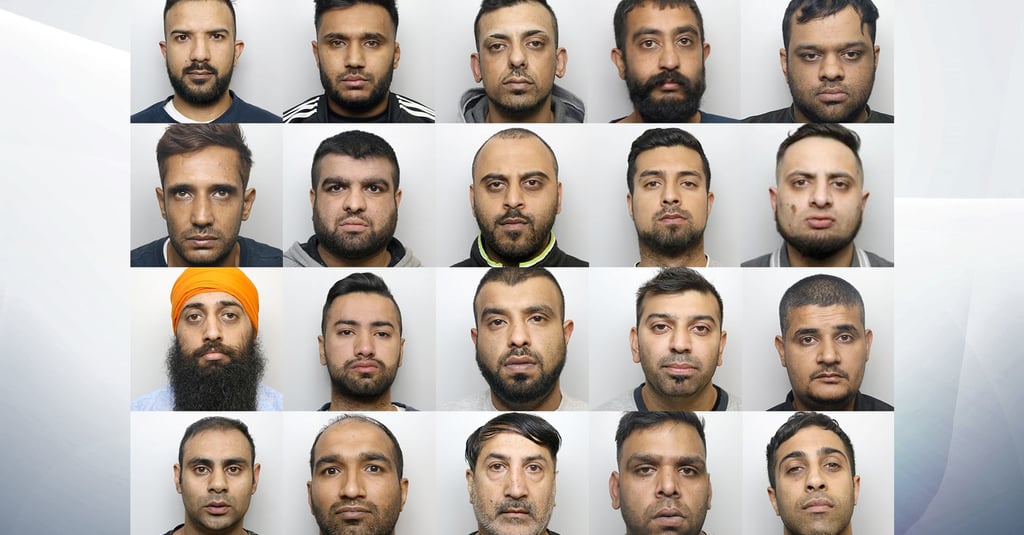Elon Musk vs. the UK Government: A Misjudged Critique or Necessary Wake-Up Call?
Elon Musk has once again found himself embroiled in controversy, this time over his scathing comments about the UK government’s handling of grooming gangs
Ed Grimshaw
1/4/20254 min read


Elon Musk has once again found himself embroiled in controversy, this time over his scathing comments about the UK government’s handling of grooming gangs. Musk accused Labour leader Sir Keir Starmer of failing to prosecute grooming gangs during his tenure as Director of Public Prosecutions (DPP) and called for Safeguarding Minister Jess Phillips to be jailed over her rejection of a national inquiry into child sexual exploitation in Oldham.
Health Secretary Wes Streeting dismissed Musk’s comments as “misjudged and misinformed,” while extending an olive branch, inviting the tech billionaire to “roll up his sleeves” and work with the government on tackling rape gangs. Meanwhile, Tory leader Kemi Badenoch reiterated her call for a full national inquiry into the UK's “rape gangs scandal,” further reigniting debates on the issue.
However, beneath the political mudslinging and Musk’s bombast lies a question the government and opposition alike seem reluctant to confront: what about the elephant in the room? Specifically, the uncomfortable reality of child grooming by organised gangs — disproportionately involving men of Pakistani Muslim backgrounds.
The Ethnicity Debate: A Sensitive but Essential Conversation
The public discourse on grooming gangs has long been fraught with accusations of political correctness stifling necessary discussions. High-profile cases in Rotherham, Rochdale, and Telford revealed patterns of abuse involving predominantly Pakistani Muslim men targeting predominantly white, working-class girls. Official reports, including Professor Alexis Jay’s inquiry into child sexual exploitation in Rotherham, confirmed this trend, highlighting systemic failings within police forces, councils, and other authorities to act due to fears of being labelled racist.
Why Does This Matter?
Systemic Failures Rooted in Fear: Authorities ignored the abuse in part because addressing it meant grappling with its ethnic and cultural dimensions. Fears of sparking racial tensions led to inaction, leaving vulnerable girls at the mercy of predators.
A Consistent Pattern: While child sexual exploitation occurs across all ethnicities, the organised nature of grooming gangs involving Pakistani Muslim men remains a recurring theme in many high-profile cases. Ignoring this pattern undermines efforts to prevent abuse.
Critiquing the Avoidance Tactic
Politicians and commentators often deflect discussions about ethnicity, preferring to generalise grooming gang cases as merely criminal behaviour. While it’s true that child sexual abuse spans all communities, the refusal to engage with the cultural aspects of grooming gangs has led to frustration among the public and survivors.
Avoiding Ethnicity Hinders Targeted Solutions
Failing to acknowledge the role of ethnicity and cultural attitudes in certain cases limits the ability to develop specific interventions. For example, understanding community dynamics, such as patriarchal norms or insular social networks, could inform better safeguarding strategies.Alienating Survivors
Survivors of abuse, many of whom have spoken about the ethnic dimension of their abusers, feel ignored when politicians skirt around the issue. This silence can be retraumatising, as it suggests their experiences are being sanitised for political convenience.Counterproductive to Community Trust
Addressing ethnicity in grooming gang cases isn’t about vilifying entire communities; it’s about ensuring justice and safeguarding for all. Open, honest discussions could help foster trust between authorities and communities, encouraging cooperation in identifying and stopping abuse.
Professor Jay’s Report: A Missed Opportunity to Address the Elephant
Professor Alexis Jay’s Independent Inquiry into Child Sexual Abuse (IICSA) was groundbreaking in its scope but stopped short of explicitly addressing the ethnicity of grooming gangs. While the inquiry acknowledged the systemic failings that allowed abuse to flourish, it avoided grappling with the uncomfortable question of how cultural and ethnic factors played a role in specific cases.
This omission has left a vacuum in public discourse, which figures like Musk are now exploiting with inflammatory rhetoric. By failing to confront the ethnic patterns in grooming gangs directly and sensitively, the government and inquiries like Jay’s have allowed the issue to fester, fuelling both public mistrust and extremist narratives.
The Role of the Media and Politicians
The media’s handling of grooming gang cases has often swung between two extremes: sensationalism and silence. On one hand, far-right activists have hijacked these cases to further divisive agendas. On the other, mainstream politicians and commentators have downplayed or generalised the issue, fearing accusations of racism.
Kemi Badenoch’s call for a national inquiry into grooming gangs might provide an opportunity to address these failings. However, critics argue that another inquiry risks delaying action when Jay’s report already provided a comprehensive roadmap for reform.
A Path Forward: Honest but Responsible Discussions
To move forward, the UK needs to tackle grooming gang cases head-on, including their ethnic and cultural dimensions, without stoking racial tensions or alienating communities.
Implement Jay’s Recommendations
Instead of calling for more inquiries, the government must prioritise implementing Jay’s 20 recommendations, particularly around mandatory reporting, child protection oversight, and public awareness.Acknowledge Patterns Without Generalising
Authorities and politicians must acknowledge the ethnic trends in certain grooming gang cases without resorting to stereotypes. This involves working with affected communities to address cultural norms that may enable abuse.Support Survivors, Not Narratives
Survivors’ voices must remain central to the discussion. Addressing their experiences honestly — including the ethnic dimension — is essential for justice and healing.Combat Extremist Narratives
Open and honest discussions should aim to disarm extremist groups that weaponise grooming gang cases to spread hate. Acknowledging facts while condemning generalisations is key to maintaining balance.
Conclusion: The Elephant Isn’t Going Anywhere
Elon Musk’s comments may be misinformed and inflammatory, but they point to an underlying frustration: a perceived unwillingness by authorities and politicians to confront the realities of grooming gangs, including their ethnic dimensions.
Ignoring the issue only creates a vacuum for polarising figures and far-right narratives to thrive. If the UK is serious about tackling child sexual exploitation, it must address all aspects of the problem, even the uncomfortable ones, with honesty and accountability.
The victims deserve no less.
